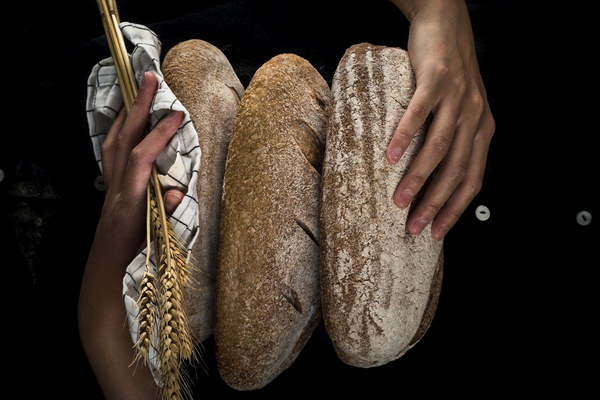Harmonizing Health Through Chinese Nutrition A Traditional Approach to Balanced Eating
In the realm of traditional Chinese medicine (TCM), nutrition plays a pivotal role in maintaining health and treating illness. Rooted in the ancient wisdom of balancing the body's yin and yang, TCM emphasizes the importance of consuming foods that nourish the body, mind, and spirit. This article delves into the basic principles of Chinese nutritional therapy, exploring the art of harmonizing health through balanced eating.
At the heart of TCM is the belief that the body is a microcosm of the universe, and that health is achieved when the body's internal environment is balanced. Chinese nutrition therapy is based on the premise that certain foods possess unique properties that can either reinforce or disrupt this delicate balance. By understanding the properties of various foods and their effects on the body, individuals can adopt a diet that supports their health and well-being.
One of the fundamental concepts in Chinese nutrition is the Five Elements theory. This theory posits that the world is composed of five elements—wood, fire, earth, metal, and water—and that these elements are interrelated and interconnected. Each element corresponds to certain organs and tissues in the body, and each food is classified according to its element. By consuming a balanced mix of foods from all five elements, individuals can promote the harmonious functioning of their organs and maintain overall health.
For example, foods that are considered to be of the wood element, such as green leafy vegetables and almonds, are believed to support the liver and gallbladder. Conversely, foods of the fire element, such as red peppers and dates, are associated with the heart and small intestine. Earth foods, like rice and millet, are thought to benefit the spleen and stomach, while metal foods, such as nuts and seeds, are linked to the lungs and large intestine. Lastly, water foods, like seaweed and black sesame seeds, are thought to nourish the kidneys and bladder.
Another key principle in Chinese nutrition is the concept of yin and yang. These two opposing forces are believed to govern the functioning of the body and are found in all things, including food. Foods are categorized as either yin or yang based on their properties and effects on the body. Yin foods are cooling, nourishing, and moistening, while yang foods are warming, stimulating, and drying.
Incorporating a balance of yin and yang foods into the diet is crucial for maintaining health. For instance, in the hot summer months, it is beneficial to consume more yin foods, such as cucumbers and watermelons, to cool the body. Conversely, during the cold winter months, eating more yang foods, like ginger and garlic, can help to warm the body and boost the immune system.

Furthermore, Chinese nutrition therapy takes into account individual differences, such as age, sex, constitution, and seasonal changes. Tailoring the diet to one's specific needs ensures that the body receives the appropriate nourishment. For example, a person with a constitution that is prone to colds and flu may benefit from a diet rich in vitamin C and zinc, such as oranges and nuts.
In addition to the basic principles of the Five Elements and yin/yang, Chinese nutrition therapy also considers the concept of hot and cold properties of foods. Foods are classified as hot, neutral, or cold based on their effects on the body's temperature and energy levels. Hot foods, such as spicy peppers and alcohol, can increase body heat and energy, while cold foods, like ice cream and cold cuts, can cool the body and reduce energy.
In conclusion, Chinese nutrition therapy is a holistic approach to health that emphasizes the importance of balanced eating. By understanding the properties of various foods and how they interact with the body, individuals can create a diet that promotes health, vitality, and well-being. Incorporating the principles of the Five Elements, yin/yang, and hot/cold properties into one's daily eating habits can lead to a harmonious and fulfilling life, as prescribed by the ancient wisdom of traditional Chinese medicine.









